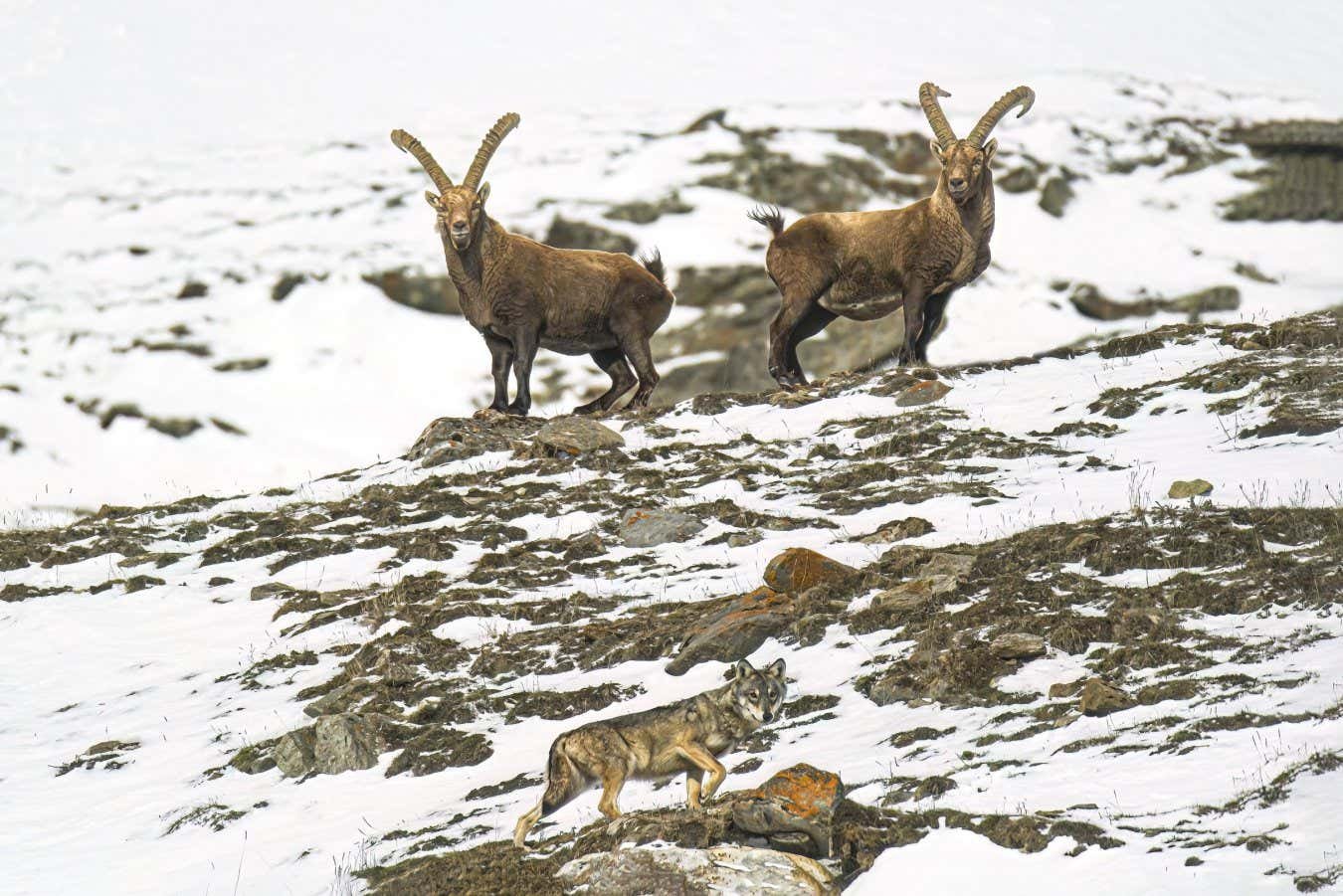
Ibex may face more danger from wolves when they move around at night
Roberto Andrighetto
Alpine ibex are becoming more nocturnal to escape rising daytime temperatures, despite a higher risk of encountering predators.
Animals that thrive in cold climates are expected to be greatly affected by increasing global temperatures caused by climate change. The Alpine ibex (Capra ibex), which is usually found grazing in Europe’s Alps during the day, is one such animal.
To see what impact there has been on it, Stefano Grignolio at the University of Ferrara in Italy and his colleagues tracked 47 individuals located in either Italy’s Gran Paradiso National Park or the Swiss National Park between May and October from 2006 to 2019. The animals were fitted with collars bearing motion sensors.
The researchers found that when there were higher temperatures during daylight hours, the ibex were more active at night. By doing so, the animals are more likely to encounter wolves, one of their main predators, so these findings came as a surprise, says Grignolio.
“Global warming seems to drastically drive their change in behaviour,” he says. “Predation is only a variable.”
As climate-sensitive animals, ibexes are probably shifting to a more nocturnal schedule to dodge the heat. Higher temperatures during the day mean they have to expend more energy to cool down compared with what it takes to keep warm at night, says Grignolio.
But while this response may help the ibex cope with a warmer climate, it may not be a viable long-term solution for the species. “[They] may not be able to fulfil their [dietary] requirements if they become too nocturnal or they suffer increased predation,” says Niels Martin Schmidt at Aarhus University in Denmark.
“The study provides a nice quantification of some of the more subtle and oftentimes overlooked responses to changes in climate,” says Schimdt.
Topics:

